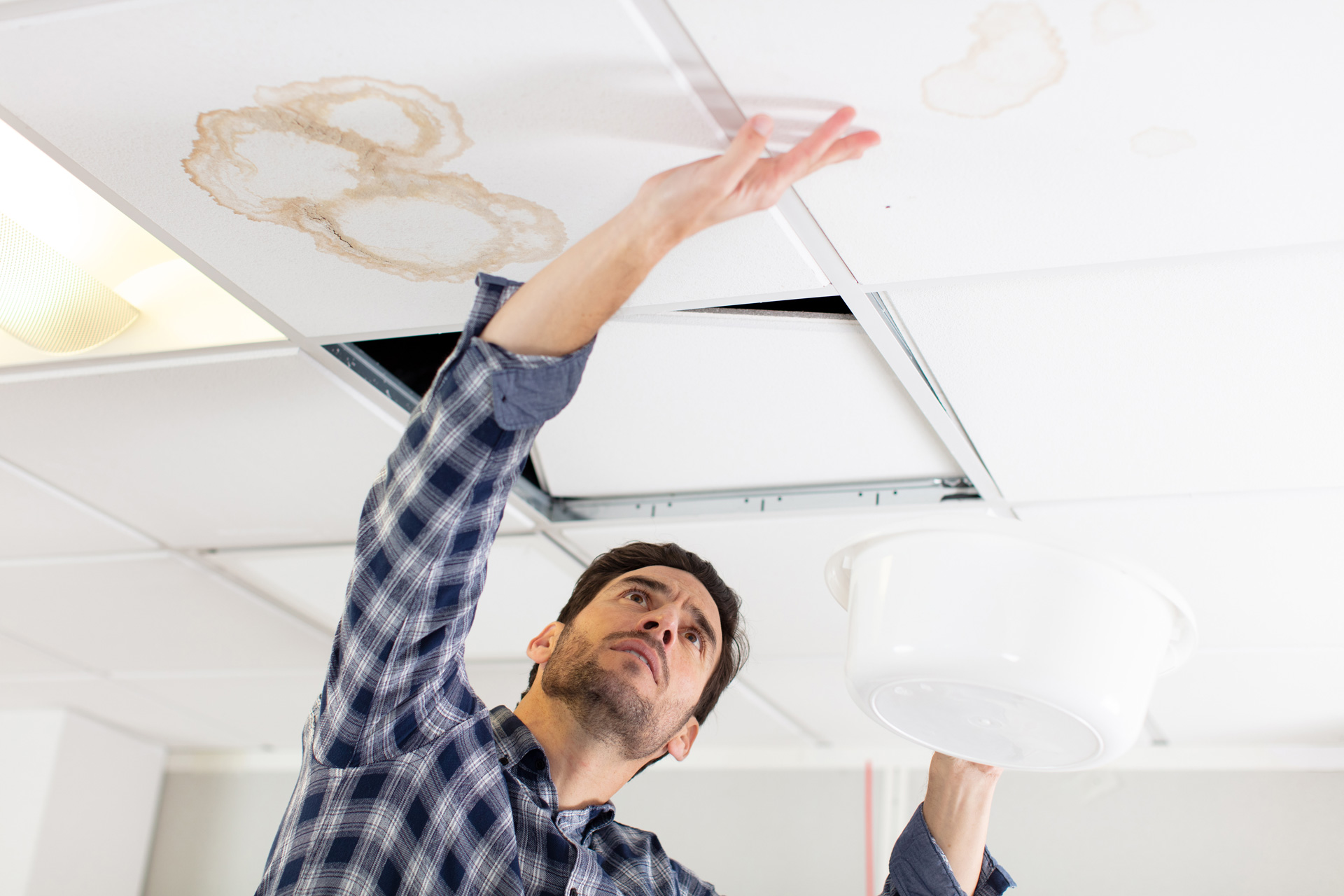

Leak detection refers to the process of identifying and locating leaks within a system or structure. It may not be obvious where the leak is coming from. Water stains on your ceiling, sagging paint, cracks in baseboard or concrete or even a musty smell in an area, you may have a water leak. Effective leak detection is crucial for preventing damage, conserving resources, and ensuring your safety.
Here are some common methods and tools used in leak detection:
– Look for visible signs: Water stains, mold, and mildew can indicate water leaks.
– Check for wet spots: Especially in areas where pipes run, such as basements, attics, or under sinks.
– Ultrasonic Detectors: These devices can detect high-frequency sounds produced by leaks.
– Hydrostatic Testing: Pressurizing a system with water to check for leaks.
– Air Pressure Testing: Similar to hydrostatic testing, but uses air pressure instead.
– Infrared Cameras: Thermal imaging can reveal temperature differences caused by leaks.
– Fluorescent Dyes: Introduced into a system, these dyes can reveal leaks when observed under UV light, commonly used to find shower pan leaks.
– Smart Water Meters: These can detect unusual water usage patterns and alert homeowners to potential leaks.
– Leak Detection Sensors: Placed in high-risk areas, these sensors can send alerts when they detect water.
– Prevents Damage: Early detection can prevent extensive water damage and possible mold growth.
– Ensures Safety: Toxic mold starts to grow after only 48 hours, so detecting a water leak early can prevent any adverse reactions to toxic mold spores.
– Saves Money: Preventing damage can result in significant cost savings. Early leak detection will lead to early mitigation measures, saving you time and money.
– Maintains System Efficiency: Keeping systems leak-free ensures they operate efficiently and last longer.
– Conserves Resources: Identifying and repairing leaks will save water and other resources.
Effective leak detection requires a combination of the right tools and methods tailored to the specific type of leak being addressed.